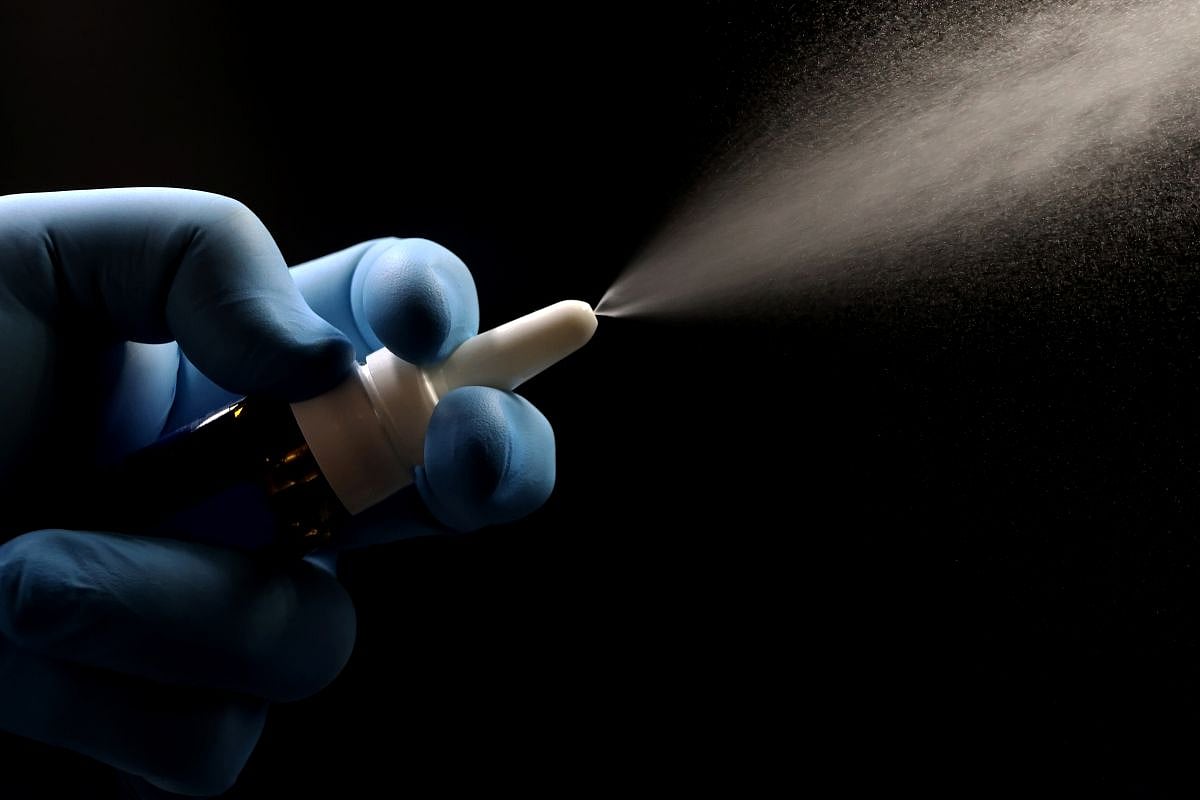Intranasal Adrenaline (Epinephrine) Offers Viable, Needle-Free Option for Anaphylaxis
THURSDAY, Oct. 9, 2025 -- Intranasal (IN) adrenaline (epinephrine) represents a viable, needle-free alternative treatment for anaphylaxis, with comparable pharmacokinetics, according to research presented at the European Emergency Medicine Congress, held Sept. 27 to 28 in Vienna.
Danielle Furness, M.B.B.S., from the University of Buckingham in the United Kingdom, and colleagues conducted a systematic literature review to examine whether IN adrenaline results in faster absorption, higher peak plasma concentrations, and comparable safety compared to intramuscular (IM) administration in adults. Five eligible studies were identified, including open-label trials and phase 1 studies.
The researchers found that IN adrenaline exhibited comparable or faster absorption than IM adrenaline (Tmax, 2.5 to 30 versus 9 to 45 minutes) and achieved similar or higher plasma adrenaline levels. Between the groups, pharmacodynamic responses (heart rate and blood pressure) were similar. Mild and transient side effects of IN administration were seen. Greater stability was seen for the IN formulation (shelf life of two years versus 12 to 18 months for IM autoinjectors).
"If approved for use, nasal sprays could become a suitable and equally effective needle-free alternative to the EpiPen, which is the current treatment for anaphylaxis," Furness said in a statement. "Patients would still need clear instructions on how and when to use a nasal spray, but it could improve the timely administration of adrenaline, especially for people who are afraid of needles, or in public, out-of-hospital settings, which could reduce the rates of hospitalizations."
Disclaimer: Statistical data in medical articles provide general trends and do not pertain to individuals. Individual factors can vary greatly. Always seek personalized medical advice for individual healthcare decisions.
© 2025 HealthDay. All rights reserved.
Read this next
Prenatal Exposure to Metal Mixture Linked to Childhood Allergic Symptoms
TUESDAY, Nov. 25, 2025 -- Prenatal exposure to metal mixtures is associated with an increased risk for allergic symptoms in childhood, according to a study published in the Dec. 1...
American College of Allergy, Asthma & Immunology, Nov. 6 to 10
The annual meeting of the American College of Allergy, Asthma & Immunology was held from Nov. 6 to 10 in Orlando, Florida, drawing attendees from around the world...
ACAAI: Eczema Onset, Severity Can Effect Child's Ability to Outgrow Food Allergy
FRIDAY, Nov. 7, 2025 -- The likelihood of outgrowing food allergy (FA) is reduced in association with the onset of eczema at 4 to 6 months, greater severity, and longer duration...
More news resources
- FDA Medwatch Drug Alerts
- Daily MedNews
- News for Health Professionals
- New Drug Approvals
- New Drug Applications
- Drug Shortages
- Clinical Trial Results
- Generic Drug Approvals
Subscribe to our newsletter
Whatever your topic of interest, subscribe to our newsletters to get the best of Drugs.com in your inbox.


